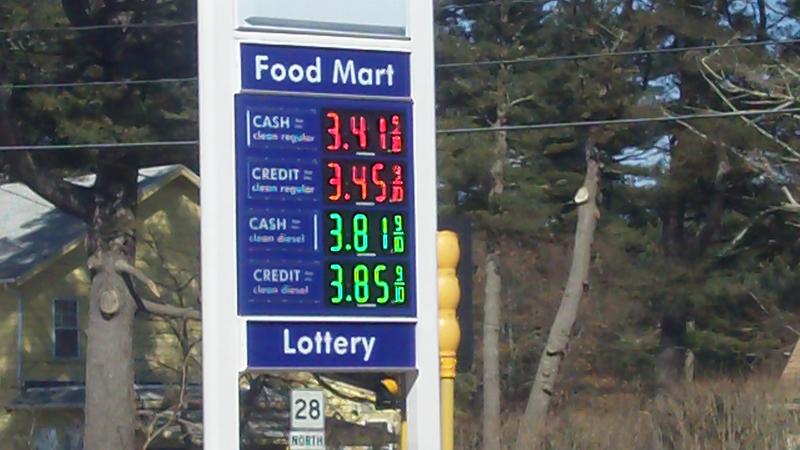Pumped up gas prices impact local business and residents
Unrest in Libya and other parts of the Middle East has led to an increase in gas prices across the country over the past two weeks. The average price for a gallon of self-serve regular is $3.38 in the Bay State. Those numbers are reflected in Wareham, where the price for regular gas now ranges between $3.32 and $3.46 per gallon.
“I think it’s ridiculous,” said Brian Tassinari, who spent $60 fueling up his Toyota pick-up at Stop & Shop Gas last week. “I just bought this truck so that I could get better gas mileage, but every three days I’m still filling up. It’s terrible.”
Consumers aren’t the only ones being negatively impacted by the pumped up prices.
“People are anxious. They are shopping around,” explained Sal Dar, manager of the Irving gas station on Cranberry Highway. When gas prices go up, profits go down for local gas stations that try to maintain competitive prices, Dar noted. He predicted many of the smaller stations could close if the costs continue to rise.
Several of those interviewed believe that price gouging is partly to blame for the hike. “There is no need for the fluctuation,” Dal said. “What is happening abroad shouldn’t affect us.”
The United States imports only two percent of its oil from Libya. “We hold the world’s biggest reserves,” Dal continued.
The gas prices have "affected business tremendously," agreed Ernie Dumaine, the owner of D&D Oil in Wareham. "People are cutting back." According to Dumaine, oil is now selling for $3.699 a gallon, that's up $0.35 to $0.40 in the past two weeks alone.
"I think that part of it is gouging, profit taking," said Tassinari. "We should be tapping into our own reserves ... Up in Alaska we should be drilling, stop relying on foreign oil."
For now, the high prices appear to be here to stay. “I heard it’s going to be five dollars by the summer,” Tassinari said.
Despite the spike, Tassinari noted his driving habits are unlikely to change. “I still have to drive.”
Still there is reason to look on the bright side, John Cornish of Atlantic Boats noted. "Being the optimist I am, I can say that my industry has equipment more efficient on fuel by 60 percent to 70 percent than six years ago," he said. "New technology has not only off set the price, but surpassed it."
For additional consumer reactions check out the video below.














